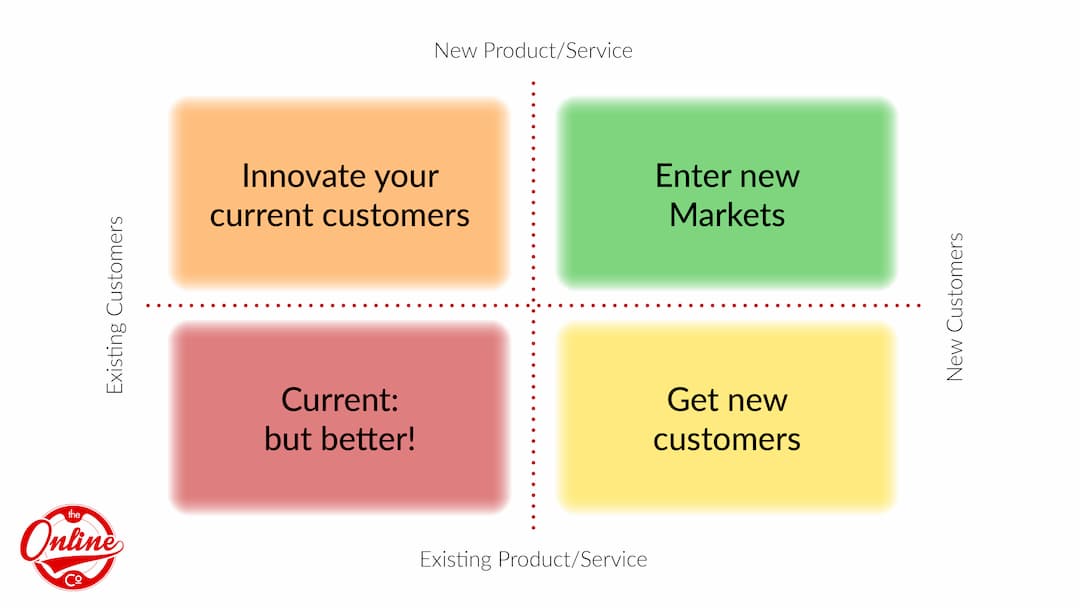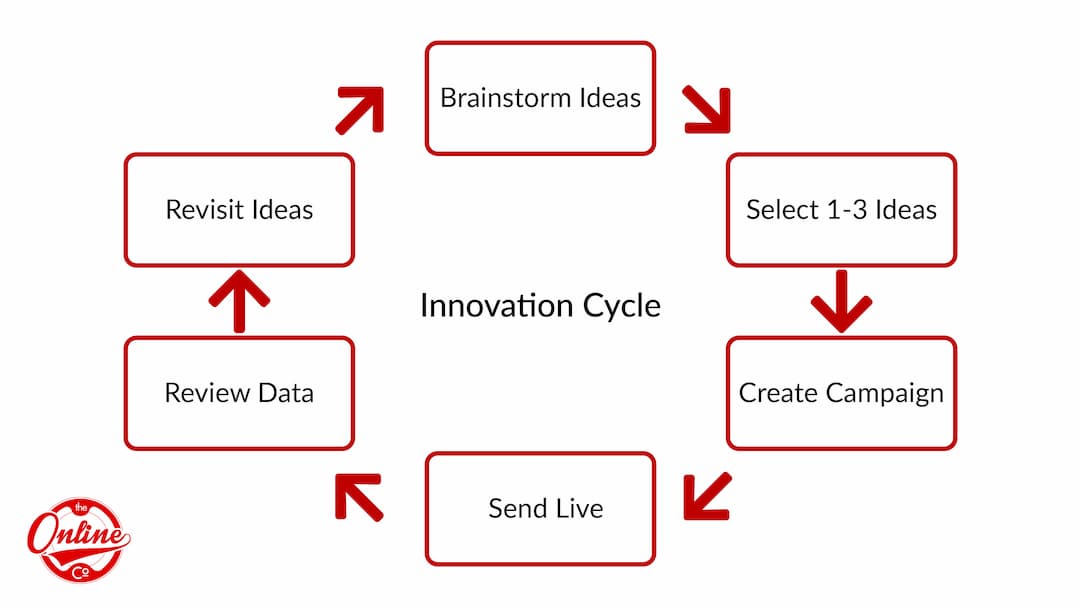Every major crisis that we experience in life does two things.
- Creates unexpected problems
- Creates unprecedented opportunities
What we need to do is keep our eyes wide open to see the facts while staying filled with optimism that we will get through this.
We need to have the courage to make hard decisions and then tap into our inner entrepreneur and start looking for opportunities.

How do you find opportunities in a crisis?
Innovation is always key to finding new opportunities in business and in crisis even more so. Our advice? Brainstorm, brainstorm, brainstorm. Get your team together or simply get out pen and paper and use this framework to help you:

What existing products/services can I provide to new customers?
For example, if you run a restaurant you could consider moving from in-house service to a food truck model. Likewise, an IT company could shift its focus towards providing support to people at home instead of in the office
What new products/services can I provide to existing customers?
A great case study on this is Canlis, a high-class restaurant in Seattle with a suit and tie dress code. Everything about the restaurant is top shelf. When they realised their current business wasn’t working in these new economic times, they adapted. Canlis started doing takeaway, selling tracksuit pants to raise money for charity and began live-streaming their in-house piano player. Now, you have people sitting at home in track pants, eating top-notch food and, listening to someone playing a grand piano. Genius! The tracksuits are a brand-new product catering for existing customers and potentially bringing in new ones.
What new products/services can I provide to new customers?
Maybe you need to look at leaving your current industry and using the skills and knowledge you have to turn towards a new enterprise. You may even be able to surge ahead of the current competitors there!
Can I sell my existing products/services to existing customers but do it better?
Meet with your team on a regular basis to look for ideas on how to do business better. You may just find that your fresh ideas lead you to an opportunity to reimagine and reinvent, taking you in a direction that you wouldn’t have discovered otherwise.
The challenge can come when you have so many ideas that you feel overwhelmed on how to implement them. Be calm, think and plan carefully then act decisively. Test and review the performance of your campaign then revisit the ideas and try again. Here’s a great method to help you make smart and accurate decisions.

What should I do with my marketing budget?
You may have been given advice by a well-meaning person that dropping your marketing budget in any type of crisis is the smartest move. However, many entrepreneurs will do exactly the opposite in order to make the most of opportunities as they arise.
Firstly, you need to put some thought into where your business is sitting currently.
Consider whether your business is:
- Heavily Affected: These businesses will have lost 70% or more of their revenue. Priority one in any crisis is weathering the storm in order to remain in business and bring your staff back to work when the crisis is over. Put your creative hat on to innovate and find ideas that can help you through.
- Moderately Affected: Businesses that have lost some but not all their revenue. This is the time to look carefully at your marketing and make sure you are measuring it properly. The worst thing you can do is panic and cancel all your marketing. There’s potential that this approach will make a bad situation much worse. Be aware that there’s a lot of competition for customers and staying active online will help you long term.
- Unaffected: These are the lucky ones. Make sure you are increasing marketing in order to maximise the opportunities in the market.
What cost-effective strategies can I use at this time?
Use the 5 pillars of Digital Marketing to assess your marketing strategy:
1. Your Voice (Brand) & Your Industry (Competitors)
If you decide to pivot into something new you will need to update all your marketing collateral. Start with your website and update your homepage for a quick win, then work your way through the rest of your website and any other marketing collateral you may have.
Assess your ideal customer and see if they have changed. See if you can find a way to offer them something unique and timely.
Review your competitors to find out who is navigating the crisis well. Be inspired by businesses ahead of you on the innovation curve and find ways to differentiate from them. Use social media and competitor websites as your information gatherers.
2. Search Strategy (Be Found)
SEO is one of the things you should consider an “essential service”. When the crisis is over, your website will be needed to bring in traffic and leads. The long-term effects of abandoning your website could be startling. If cost is an issue, consider dropping the investment but not stopping it. Remember that Google is looking at the freshness of your content and comparing it with your competitors. If traffic suddenly stops on your website, Google may assume you’re no longer there. Be sure to signal Google that you are alive and well!
3. Paid Search (Google Ads)
Review your keywords and be sure they are working. Refine your return on investment based on that research.
4. Social Media Strategy (Be Influential)
Social Media is the most agile way to trial a new message or business idea. Continuing to post content across social media sends the important message to your customer that you are still open for business, building confidence in your product/service. Social media is a cost-effective way to keep your voice strong in the market.
5. Be Nurturing (Marketing Automation)
Email marketing is a very simple way to activate your existing database. Create a valuable piece of content, a checklist, mini-course or worksheet and get people to download it via email. This will grow your database and help build relationships.
Finally, don’t forget about good old-fashioned networking. Offer help to people you have worked with in the past and there’s every chance they’ll offer to help you.






















